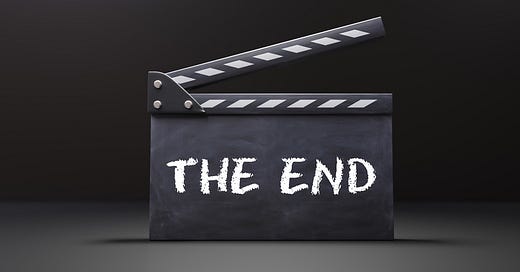When hope isn't working
The "wonderful virtue of hopelessness" when the family business must change.
Last week I wrote about the virtue of hope. Beyond being just a wish, hope is shaped in our character through perseverance. To paraphrase Paul, hope becomes a part of who you are based on where you’ve been.
However, being wired for hope does not mean ignoring reality; there are times when having less hope, or becoming “hopeless,” is also valuable, even necessary. Specifically, having less hope can be a motivator when change is important to the future of the family business or family relationships.
In his book Necessary Endings, Dr. Henry Cloud writes about the activities and relationships in our lives that are at, or should come to, an end. He likens such necessary endings to pruning a rosebush: there are either too many buds (too many opportunities), or parts of the plant are sick and dying. Sometimes we need to create an ending — we need to prune the rosebush — to improve the health of our businesses, bodies, minds, and relationships.
Why endings? Whether we like it or not, endings are a part of life. They are woven into the fabric of life itself, both when it goes well, and also when it doesn’t. On the good side of life, for us to ever get to a new level, a new tomorrow, or the next step, something has to end. Life has seasons, stages, and phases. For there to be anything new, old things always have to end, and we have to let go of them.
In addition to getting to the “new” or the “good,” there are also unhealthy or detrimental aspects in life or business that need an ending.
In many contexts, until we let go of what is not good, we will never find something that is good. The lesson: good cannot begin until bad ends.
Realizing you need to end something involves admitting that the situation — despite your hope — will not get better. You may wish for change, but the reality is the circumstances, or the other person, or the pattern of behavior, likely won’t change, and you need to move on. You need to create an ending. And in many cases, after some time, others will admit or even appreciate your courage in creating that ending.
When it is clear an ending is needed, that despite having hope the situation won’t change, Dr. Cloud points to Proverbs 13:12:
Hope deferred makes the heart sick, but a desire fulfilled is a tree of life. (Proverbs 13:12)
Can you recall a necessary ending in your life or business? How did having “less hope” create the conditions for change?



Perfect follow-up to last week's message. Our faith and hope defines us and gives us strength. That said, we must not lose our perspective and the ability to pivot back towards the light. Thanks!